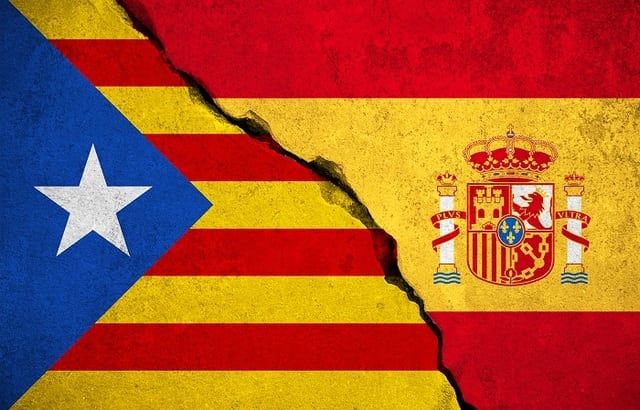Despite the political turmoil brewing in Catalonia, Spain’s stock exchanges were a picture of calm after the region’s president Carles Puigdemont announced he would be suspending the declaration of independence on Tuesday, even though this was followed up with an assertion that he would “follow people’s will for Catalonia to become an independent state”.
The Ibex 35, the benchmark index of Spain’s principal stock exchange, the Bolsa de Madrid, opened nearly 2% higher at 10,301.5 the following day.
But deVere CEO Nigel Green cautions that “the chaos in Catalonia is a wake-up call for global investors”.
“The aftermath of geopolitical events of this magnitude have the potential to influence capital markets which, of course, drive investor returns,” he said.
“Up until now the chaos in Catalonia had been largely dismissed by global investors as a regional issue. However, now that Mr Puigdemont is effectively saying that Catalonia will become independent come what may, a considerably heightened game of cat and mouse between Barcelona and Madrid has been started – and this could have far-reaching economic consequences in the short and longer term.”
Short term, Green thinks the ongoing uncertainty will create turbulence in domestic and regional financial markets. Over the longer term, if Catalonia breaks away, Spain could lose up to 20% of its revenue, a seismic move which would be felt elsewhere in Europe.
“This is perhaps especially concerning as we have recently had the German election, with Merkel returning but with a lower majority, and now we have the Austrian election, and the Italian one next year,” he added. “And this is all against a backdrop of British PM, Theresa May, being urged to walk away from Brexit negotiations in Brussels if they fail to make progress this month.”
The calamity in Catalonia has also forced Axa’s CIO of fixed income, Chris Iggo, to reconsider his preference for the region.
“We have long preferred Spain to Italy because of the reforms that have taken place in Spain, the turnaround in the banking system relative to Italy and better economic growth,” said Iggo.”However, cessation of the wealthiest part of the country would clearly have tremendous implications for the Spanish economy, its banks and political stability.
“As Europe struggles to deal with Brexit the last thing it needs is a region within a member state declaring independence.
“Two Spanish banks have already threatened to move their headquarters out of the region and there will need to be questions asked about sharing Spanish sovereign liabilities and assets going forward. Hopefully there will be reconciliation but Spanish bonds look rather toxic in the near term.”










